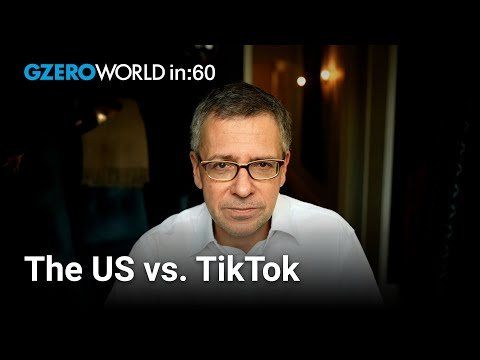Ian Bremmer shares his insights on global politics this week on World In :60.
Four years since the US declared COVID a national emergency, how did it permanently reshape the world?
Well, a couple of things. First, it meant that US-China relations got worse, not better. The World Health Organization, the one global organization meant to deal with pandemics, got delegitimized. This was not a crisis that led to greater cooperation. It led to greater mistrust and greater polarization, in part because it wasn't a big enough crisis. Thankfully, we had vaccines really fast, and it also turned out that COVID really affected mostly the super elderly and those with serious preexisting conditions. All of that allowed the geopolitical rifts that already exist to get worse. One good thing, aside from the fact that technology really works, is that the Europeans got stronger on the back of this crisis. They now have more coordinated capabilities to respond to health crises than they did before the pandemic hit. And that has been the EU response to a lot of crises recently, Brexit, the Russian invasion of Ukraine, you name it.
As the US House goes after TikTok, does it speak to a broader US-China battle?
Well, it speaks to significant mistrust between the two countries. Espionage by the Chinese against the United States, by the way, that goes both ways of course. The Americans just aren't concerned about US espionage into China. Also, the fact that the Chinese don't allow Western social media companies to have access to the Chinese population and data. So no one should be all that surprised that the Americans are interested in forcing ByteDance to spin off TikTok. Having said that, the Chinese are pretty unhappy about it and have said that they're not going to spin it off. We'll see if their bark is equivalent to their bite. Assuming this passes in short order in House and Senate. Biden has said that he would sign it and then there's the broader question of does it undermine what has been a pretty strong effort by both the Americans and Chinese to communicate more thoroughly in the relationship and stabilize the baseline so that we don't have conflict that scales out of control and that has worked reasonably well since the APEC summit back in San Francisco in November? But that doesn't mean it will hold if the Americans start throwing more punches. On balance, I think forcing China to spin off TikTok is a reasonable thing for the Americans to do, but it will be one more straw on the camel's back. Let's see what happens in terms of Chinese response.
Finally, Princess Kate and the photoshop-fail heard around the world!
Big deal? Well, look, I mean, I am someone, as you know, that tries to keep a much lower profile than Princess Kate. So I don't like to necessarily share all the things that I'm doing around the world. But, I mean, you know, given everyone focusing on Kate's photo, I will share that in the last few days, I was there with Sweden, of course, and the prime minister, who I know well when they formally joined NATO. There was, of course, also the State of the Union, which, you know, I was doing live commentary on and right there from the gallery. But you probably are surprised that I was also right behind the scenes at the Oscars. I don't usually show for that. And it's not because I don't wear a tie, but they gave me dispensation. And also let me bring Moose, which is very important. Don't fall asleep on Princess Kate, right? I mean, you know, she has a hard enough time and she's got to distract away from King Charles. We don't know what's going on with him either. We don't really care. At least I don't.
- Sen. Mitt Romney on TikTok: Shut it down ›
- The Graphic Truth: The world's other royals ›
- Monarchies that matter ›
- China's COVID lockdowns made its people depressed and hurt its economy ›
- Should Putin get a Nobel in Medicine for ending talk of COVID? ›
- TikTok "boom"! Could the US ban the app? ›
- Graphic Truth: The world is crazy for TikTok ›
- TikTok is the ultimate propaganda tool, says tech expert Scott Galloway ›
More For You
Most Popular
Will AI change the balance of power in the world? At the 2026 World Economic Forum in Davos, Ian Bremmer addresses how artificial intelligence could redefine global politics, human behavior, and societal stability.
Ian Bremmer sits down with Finland’s President Alexander Stubb and the IMF’s Kristalina Georgieva on the sidelines of the World Economic Forum to discuss President Trump’s Greenland threats, the state of the global economy, and the future of the transatlantic relationship.
GZERO World heads to the World Economic Forum in Davos, where Ian Bremmer lookst at how President Trump’s second term is rattling Europe, reshaping both transatlantic relations and the global economy, with Finland’s President Alexander Stubb and the IMF’s Kristalina Georgieva.
